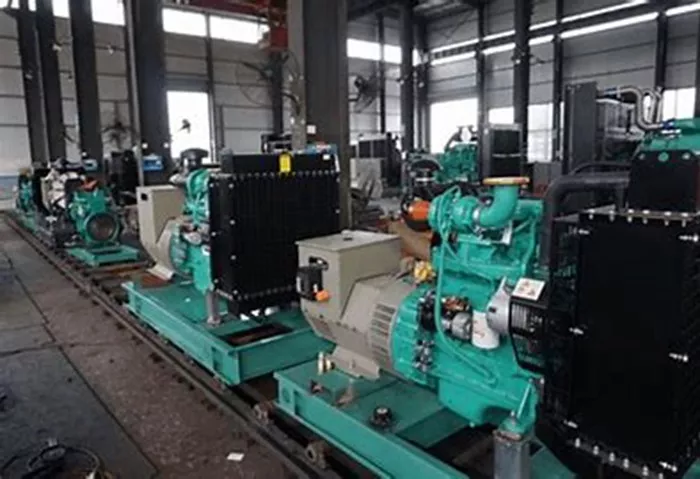Diesel generators are widely deployed across various sectors, from powering construction sites to serving as backup power sources in hospitals. However, like any technology, they come with their fair share of drawbacks. Understanding these disadvantages is crucial for potential users, helping them make well – informed decisions. This article will take a deep dive into the downsides of diesel generators, covering cost, environmental impact, maintenance, and more.
High Initial and Maintenance Costs
Steep Initial Investment
One of the most immediate deterrents for many potential buyers is the high initial cost of diesel generators. Diesel engines, by design, are more complex than their gasoline counterparts. They need heavy – duty components to endure the high – pressure combustion process. For instance, the engine block of a diesel generator is typically made of stronger materials to withstand the higher compression ratios. This advanced engineering and use of high – quality parts drive up the manufacturing cost, resulting in a significantly higher price tag. In comparison, gasoline generators of similar power output are often much more affordable, making them a more attractive option for budget – conscious consumers.
Maintenance Demands and Expenses
Diesel generators require regular maintenance to operate at their best. Components like fuel injectors, air filters, and oil filters need frequent inspection and replacement. Fuel injectors, in particular, are prone to clogging due to the nature of diesel fuel. If not maintained properly, they can lead to inefficient combustion, reduced power output, and increased fuel consumption. Also, diesel engines are more sensitive to fuel quality. Low – quality diesel can cause damage to the fuel system, further increasing maintenance costs. While diesel engines generally have fewer parts that wear out compared to gasoline engines, the cost of replacing specialized diesel components can be substantial.
Environmental and Noise Pollution
Harmful Emissions
Diesel generators are notorious for producing high levels of pollutants. They emit significant amounts of particulate matter (PM), nitrogen oxides (NOx), and sulfur compounds. PM emissions, in particular, can have serious health implications, especially for those with respiratory problems. These tiny particles can penetrate deep into the lungs, causing coughing, wheezing, and even more severe respiratory diseases over time. In addition, NOx emissions contribute to the formation of smog and acid rain, which are harmful to both the environment and human health. Although advancements like diesel particulate filters and selective catalytic reduction systems have helped reduce emissions, diesel generators still produce more pollutants than many alternative power sources.
Excessive Noise
The operation of a diesel generator is typically accompanied by a loud, clattering noise. The high – compression combustion process in diesel engines generates more noise compared to gasoline engines. This can be a major issue, especially in residential areas or noise – sensitive environments. For example, a diesel generator running during a power outage in a quiet neighborhood can disrupt the peace and quiet, disturbing neighbors and causing annoyance. While some modern diesel generators come with sound – proof enclosures and advanced muffler systems to reduce noise, they may not completely eliminate the problem.
Cold – Weather and Fuel – Related Challenges
Fuel Gelling in Cold Temperatures
Diesel fuel has a tendency to gel in extremely cold weather. As the temperature drops, the wax in the diesel fuel begins to crystallize, leading to a thickening of the fuel. This can cause blockages in the fuel lines and filters, preventing the generator from starting or running smoothly. To combat this, special additives need to be added to the fuel, or heated fuel tanks may be required. Additionally, using winter – grade diesel fuel is essential in cold climates. However, these solutions add to the overall cost and complexity of operating a diesel generator in cold weather.
Limited Fuel Availability
In some regions, diesel fuel may not be as readily available as gasoline. This can be a significant problem, especially in remote areas or during emergencies. Gasoline stations are more widespread, making it easier to refuel gasoline generators. In contrast, finding a diesel – fueling station can be a challenge, which could leave a diesel generator without fuel when it’s needed the most.
Portability and Safety Concerns
Lack of Portability for Larger Units
While small – and medium – sized diesel generators can be relatively portable, larger industrial – grade units are often heavy and bulky. They require specialized equipment for transportation, such as forklifts or trucks. This lack of portability makes them unsuitable for applications that require frequent movement, such as camping or small – scale outdoor events. Gasoline generators, on the other hand, are generally more lightweight and compact, making them more convenient for portable use.
Safety Risks
Diesel fuel is flammable, and like any fuel, it poses a safety risk. Diesel generators need to be stored and operated in a well – ventilated area to prevent the build – up of fuel vapors. In addition, diesel engines can produce high temperatures during operation, increasing the risk of fire. If not properly maintained, leaks in the fuel system can also lead to dangerous situations. Moreover, the electrical components of diesel generators can pose an electrical hazard if not handled correctly.
Conclusion
Diesel generators, despite their many advantages, have several significant disadvantages. The high initial and maintenance costs, environmental and noise pollution, cold – weather and fuel – related challenges, as well as portability and safety concerns, all need to be carefully considered. For some users, these drawbacks may outweigh the benefits, prompting them to explore alternative power sources. However, with ongoing technological advancements, some of these disadvantages may be mitigated in the future. As such, staying informed about the latest developments in diesel generator technology is essential for making the right choice when it comes to power generation.

